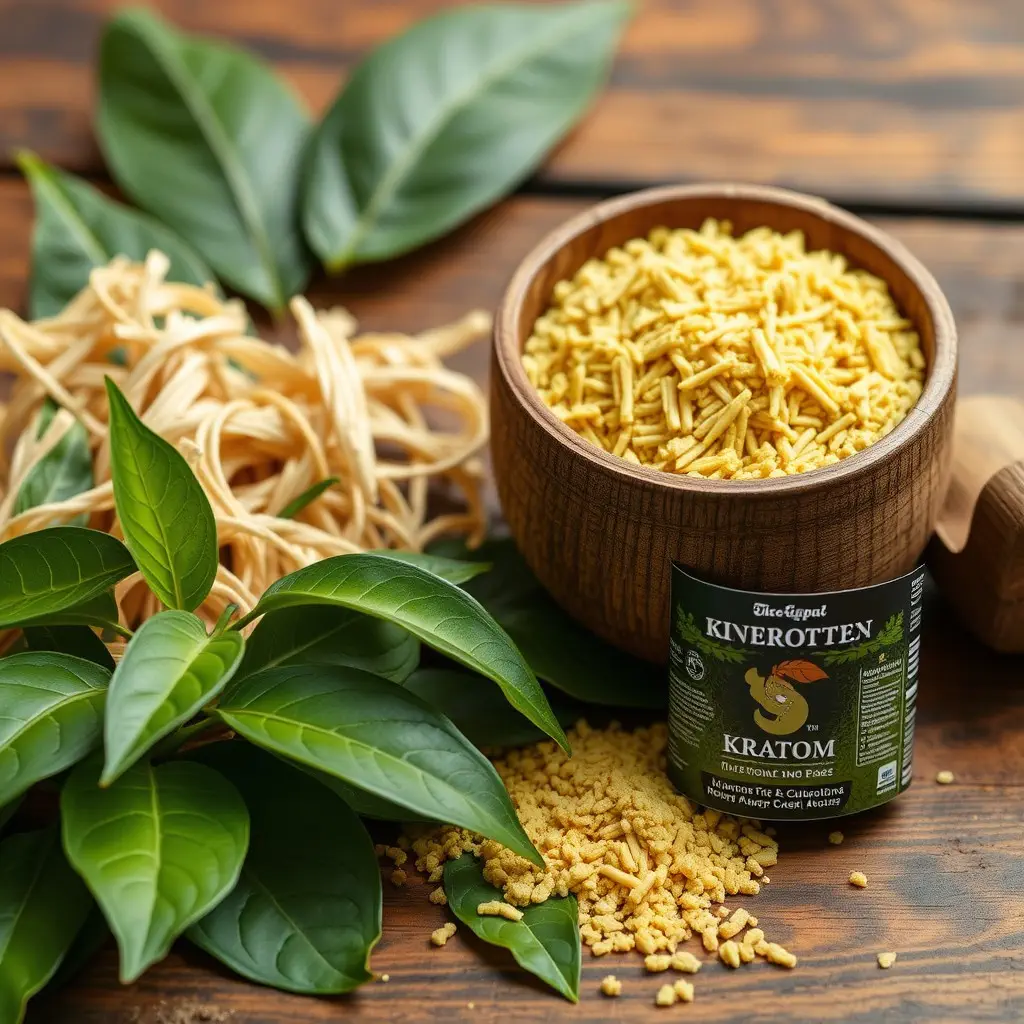White Sumatra Kratom Powder contains alkaloids like mitragynine and 7-hydroxymitragynine, which can interact with opioid receptors in the brain, affecting mood and pain perception. It is known for its uplifting and euphoric effects combined with energy enhancement, without causing heavy sedation, making it a popular supplement among those seeking focus and mood elevation. However, because Kratom's alkaloids are similar to opioids and can show up on standard opioid tests, individuals subject to drug testing, such as military personnel, should be aware that its use could result in a positive test, with significant implications for their careers. The U.S. Army's drug testing policy is designed to maintain the health and operational readiness of its personnel, focusing on illegal substances and those with high potential for abuse. Although Kratom is not explicitly banned by the Department of Defense, its inclusion in drug screening panels is not definitive and is subject to change based on legal and policy updates. Service members must stay informed about the evolving status of Kratom within the military and seek guidance from professional medical or legal advisors. The question of whether the Army tests for kratom is complex, influenced by both scientific understanding of its effects and the adaptive nature of military drug testing policies.
White Sumatra Kratom Powder has garnered attention for its unique properties and potent effects, with historical roots tracing back to traditional Southeast Asian medicine practices. This article delves into the nuanced impact of this Mitragyna Speciosa variant, exploring its effects and role in both past and contemporary contexts. A significant aspect of our exploration includes addressing the intersection of military standards and Kratom testing, as questions arise regarding whether the Army tests for Kratom presence. Understanding the implications of such testing is crucial for those interested in the broader scope of this botanical’s influence and regulation.
- Unraveling the Potency and Effects of White Sumatra Kratom Powder
- The Role of Mitragyna Speciosa in Historical and Modern Usage
- Addressing Military Standards and Kratom Testing: Does the Army Test for Kratom?
Unraveling the Potency and Effects of White Sumatra Kratom Powder

White Sumatra Kratom Powder, originating from the lush and verdant islands of Sumatra in Indonesia, is a botanical substance that has garnered attention for its unique alkaloid profile. This profile contributes to the distinct potency and effects that users experience. The Mitragyna speciosa tree, from which Kratom is derived, contains over 40 alkaloids, with mitragynine and 7-hydroxymitragynine being the most prominent. These compounds are believed to interact with the brain’s opioid receptors, influencing mood and pain perception. The White Sumatra strain is known for its invigorating and euphoric effects, often described as a balance between the stimulating properties of White Vein strains and the soothing characteristics of Red Vein varieties. Users report that it can help alleviate fatigue, increase focus, and promote a sense of well-being without the sedative effects associated with higher doses or different strains.
When considering the effects of White Sumatra Kratom Powder, it’s important to approach its use with caution, especially in contexts where drug testing is mandatory, such as within the military or other professional settings. The legal status of Kratom varies by region and employer, and its presence can potentially result in a positive test for opioids, even though Kratom is not an opiate. Employees should be aware that substances like Kratom can be detected in standard drug tests designed to screen for opioid use. It’s advisable for individuals subject to such testing to consult with healthcare professionals or legal advisors before consuming any form of Kratom, including White Sumatra. Understanding the implications of its detection is crucial for anyone considering its use as part of their wellness regimen.
The Role of Mitragyna Speciosa in Historical and Modern Usage

Mitragyna speciosa, commonly known as Kratom, has been a subject of interest due to its diverse effects and historical usage. Native to Southeast Asia, particularly in countries like Thailand and Malaysia, Kratom has been traditionally used by local populations for centuries. The indigenous inhabitants have utilized the leaves for their stimulant properties, often chewing them to enhance physical work capacity and alleviate fatigue during long hours of labor. This historical application mirrors some of the reported effects in modern usage, where individuals consume Kratom to experience a boost in energy and focus.
The role of Mitragyna speciosa has expanded beyond its traditional use as both a stimulant and a sedative, depending on the dosage. In contemporary society, Kratom is often consumed in powdered form, which can be ingested orally or mixed with various beverages. The alkaloids present in Kratom, such as mitragynine and 7-hydroxymitragynine, are thought to be responsible for its psychoactive effects. These compounds have been the subject of scientific investigation, exploring their potential benefits and mechanisms of action. Amidst this exploration, there is ongoing discussion about the implications of Kratom within various sectors, including the military. Questions regarding does the army test for kratom arise as service members seek ways to manage fatigue and enhance performance. The balance between leveraging the reported properties of Kratom and addressing potential concerns associated with its use remains a topic of debate and research.
Addressing Military Standards and Kratom Testing: Does the Army Test for Kratom?

The United States Army maintains stringent standards for performance and conduct, with a comprehensive drug testing policy designed to ensure the well-being and operational readiness of its personnel. Within this framework, the Army’s testing protocols primarily focus on substances that are explicitly illegal or have clear negative impacts on military effectiveness. Kratom, a botanical supplement derived from the leaves of Mitragyna speciosa, has gained popularity among certain military personnel due to its purported pain-relieving and energizing properties. However, the question of whether the Army tests for kratom specifically is nuanced. While kratom is not explicitly banned under current Department of Defense policies as of the knowledge cutoff date, it exists in a gray area. The Army’s drug testing program mandates screening for substances that are illegal or have high potential for abuse and misuse, which typically includes opioids due to their impact on health and military duties. Since kratom’s legal status is subject to change at the federal level and its alkaloids share pharmacological properties with controlled substances, the Army’s testing practices may adapt accordingly. It’s important for service members to be aware of the evolving regulations surrounding kratom and consult with medical professionals or legal advisors within their branch for the most current guidance. The testing methods used by the military are advanced and can detect a wide range of substances, but whether kratom is specifically included in the panel of substances tested for may depend on specific circumstances and updates to policy.
White Sumatra Kratom Powder has emerged as a topic of significant interest, both for its traditional uses and contemporary applications. This article has delved into its potency and effects, providing readers with an informed understanding of how this Mitragyna Speciosa variant interacts with the body. Historically, the kratom tree has been woven into the fabric of local cultures, a testament to its enduring role in health and well-being. However, modern usage has raised questions about its legal status and safety, particularly within military standards. The section addressing whether the army tests for kratom offers clarity on this front, highlighting the measures taken to ensure the safety and compliance of personnel. As the discussion surrounding kratom continues to evolve, it remains crucial for individuals to seek accurate information and consider the implications of its use in various contexts, including military ones. The insights provided here underscore the importance of a nuanced approach to understanding and regulating White Sumatra Kratom Powder and its place within society.






